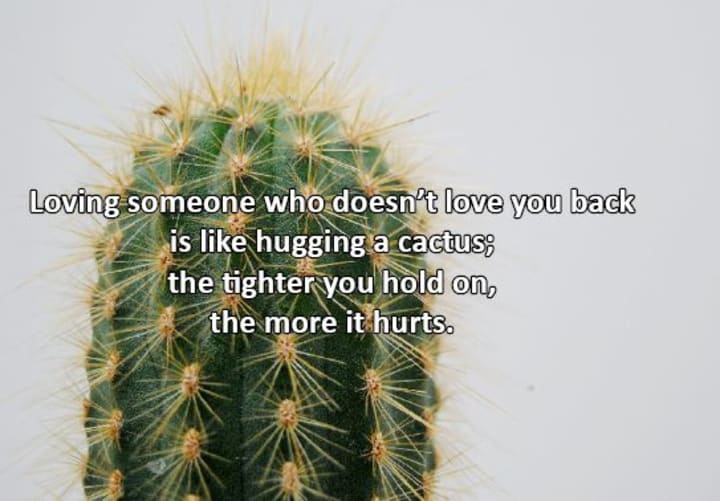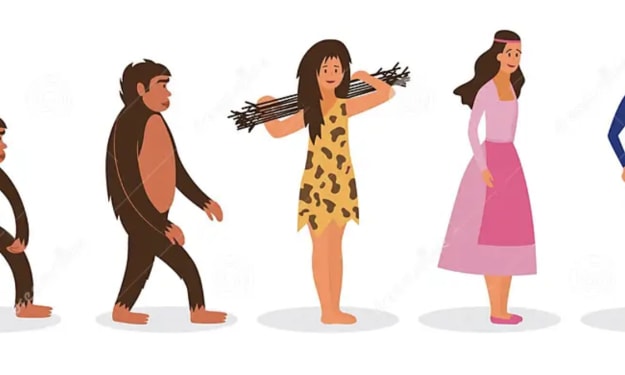The Three Kinds of Love
Love that is in imbalance is unlikely to last.

If you can identify the kind of love you and your partner feel for each other, you’ll have a better chance at telling whether your relationship is going to work.
I make no claims to being an expert on the subject of love. I am not a psychologist or relationship scientist and I have no qualifications other than being in possession of a heart that has been broken many times— perhaps that’s the only qualification needed when it comes to talking about love. I have, however, read The Rules, He’s Just Not That Into You and other dating books and learned about personality types and temperament, and this is the basis of my own theory that I’m putting forward today.
While I agree that the potential for love to develop depends on compatible personalities (and some personality types are more prone to romantic feelings and falling in love than others), background, the circumstances of how a couple meets and the application of various dating "rules"; it is my belief that it is the type of love that a couple experiences that determines the success of the relationship. I have identified three types.
Infatuated Love
This is probably the love that causes the most problems, because at first it can seem a lot like Romantic Love. It has all the hallmarks of Romantic Love: you feel like you’re in love, your feelings are intense, it all feels so right, and you can’t believe how lucky you are. Everything seems so perfect.
The problem with infatuated love is that it doesn’t last. The feelings quickly cool, sometimes after only a few weeks, sometimes after a few months, but they always cool. And when they do, you realise you don’t have much in common after all and you wonder what you saw in the person in the first place.
Comfortable Love
This is a good stable love. It’s a love based on mutual understanding, friendship, affection, and strong attachment. It’s a love that may form slowly over time or it might feel "meant to be," like you’ve found your soulmate. It’s not really terribly romantic though, the feelings are genuine and sincere, but there’s no great passion, no aching desire, or romantic yearning. It’s all very grounded and sensible.
Simply put, Comfortable Love is when you love someone, but you’re not IN love with them. Some might choose to be in a Comfortable Love relationship out of convenience. That doesn’t mean it can’t work though; relationships based on this love can be very successful and last a lifetime. The key to success is a mutual willingness to put in the time, effort, and compromise needed to make it work. If circumstances become too difficult, the love might not be strong enough to keep the couple together and they might drift apart, look for love elsewhere or choose to split because the work needed to keep it going is no longer acceptable.
People with a romantic nature may find Comfortable Love unsatisfying or that if they remain in a Comfortable Love relationship that they have somehow "settled" for second best.
Romantic Love
This is the love of fairy tales, movies, and romance novels. It’s the love-at-first-sight kind of love with the happily-ever-after ending. It appears effortless, it’s all-consuming, powerful and passionate and nothing can break the bond between two people IN love. Unlike Infatuated Love it never cools and only grows stronger over time. The couple would be willing to make any sacrifice in the name of love to be together. It does exist, but it is rare.
I think women fall in Romantic Love more easily than men, so finding mutual Romantic Love is the holy grail of relationships. That’s what makes it so addictive to us women and why it’s the love portrayed in the majority of romance stories. It’s not so much the happily-ever-after ending—Comfortable Love can experience that too—it’s the lengths people will go to, the sacrifices they will make in the name of love that make it so compelling. It’s not that the woman ends up with the rich CEO or the charming prince at the end of the story; it’s that the CEO sacrifices that big business deal or moves across the globe to be with the woman; it’s that the prince is willing to risk royal scandal of loving a commoner to be with the woman. The men in the stories make great sacrifices to be with the woman—something that’s not terribly common in real life. Even in our modern society, it’s still the women that are expected to make the sacrifices with no complaint.

Finding Love That Works
Having identified the three kinds of love, I’ve now come to understand why some relationships work and others don’t. I believe the ones that succeed are where both partners feel the same kind of love for each other and the ones that fail are where the partners feel a conflicting love type.
If two people are casually dating and they both feel Infatuated Love for each other, then they’re likely to have a successful but short-term relationship where they split on amicable terms.
If two people are in a long-term relationship and both feel Comfortable Love for each other and are willing to put in the time and effort to make compromises and to make the relationship work, then they’re likely to enjoy a long fulfilling relationship.
The problems start when there is a conflicting love type—one partner feels Infatuated Love while the other feels Comfortable Love, or one feels Comfortable Love and the other, Romantic love and so on. This leads to an imbalance of feelings—one partner feels more than the other, one partner is more committed than the other, or one partner is not looking for long-term while the other is. Where there is an imbalance, the relationship is not likely to work.
Someone who feels only Infatuated Love for their partner is not likely to commit to a long-term relationship or if they do, their feelings are liable to turn to resentment when their love cools. Similarly, someone who feels only Comfortable Love might not be willing to make the sacrifices to their lifestyle to make a relationship work or may simply not feel strongly enough about their partner if their partner feels Romantic Love for them and wants more.
My Own Experience
When I look back at my own relationships, and the years I spent trying to analyse what went wrong and what I could have done to change things, I realise that it really does all come down simply differing love types.
I had two relationships where I moved in with a guy shortly after meeting him as it "seemed so right" and they seemed so smitten with me. Though both relationships lasted for about three years each, I realise that it was only through denial—the proverbial flogging of a dead horse. The first relationship hit the rocks just three months in and the second after about a year. I wish I had known then what I know now. In both relationships we weren’t in love. It was infatuation and we made the mistake of making a commitment far too soon and then felt obliged to try and make it work, dragging the relationships out for a few more years during which we just made each other miserable.
In another relationship I felt Romantic Love for someone who only felt Comfortable Love for me and was not willing to make compromises to make the relationship work and would simply never feel the depth of love that I felt. If I had realised this sooner I could have spared myself several years of waiting hoping that he would eventually feel more for me than he did.
Knowledge is power.
While this might all seem pretty bleak, like the odds are against finding a relationship that works, knowledge is power. If you can understand why the relationship isn’t working, then you’ve got a better chance of getting out early and moving on sooner rather than staying in a dysfunctional relationship in the hope that it might one day change. Yes, people do change, but I think love is constant in its intensity. Comfortable Love doesn’t suddenly become Romantic Love and Romantic Love doesn’t dry up—think of those elderly couples in their nineties who still hold hands and giggle affectionately about each other. So staying with someone in the hope that their feelings for you will grow is only harming your own chance at finding the love you want and making them feel captive.

How do you tell the difference?
This is the hard part, but I do think that if you are honest with yourself and have an understanding about the differences in love type, that you’ll know in your gut.
If you’re feeling that it’s all so fantastic, like it’s too good to be true, then it probably is and you’re in an Infatuated Love situation. Give the relationship time before making any big relationship decisions you may later regret when the love cools.
If you’re with someone and you both care about each other, but just can’t seem to get the relationship to work then there’s an imbalance going on. The best advice is to be open and talk about it, be honest about what you both feel. If you’re both feel Comfortable Love then see if there are compromises you can come to, to make it work.
It might be that your partner doesn’t want to commit because they only feel Infatuated Love, or feel unable to give you what you want because they feel Comfortable Love when you feel Romantic Love. In these cases it might be best to go your separate ways.
And if you have no question in your mind about the power of your love for your partner and their love for you, then congratulations you have found Romantic Love. Hold on to it and never let it go!
About the Creator
Skye Bothma
Skye is a freelance editor and writer living in rural New Zealand, where she writes about life, love and what it is to be human. She is also the author of one novel and working on her next book. Visit her website at www.skyebothma.nz






Comments
There are no comments for this story
Be the first to respond and start the conversation.